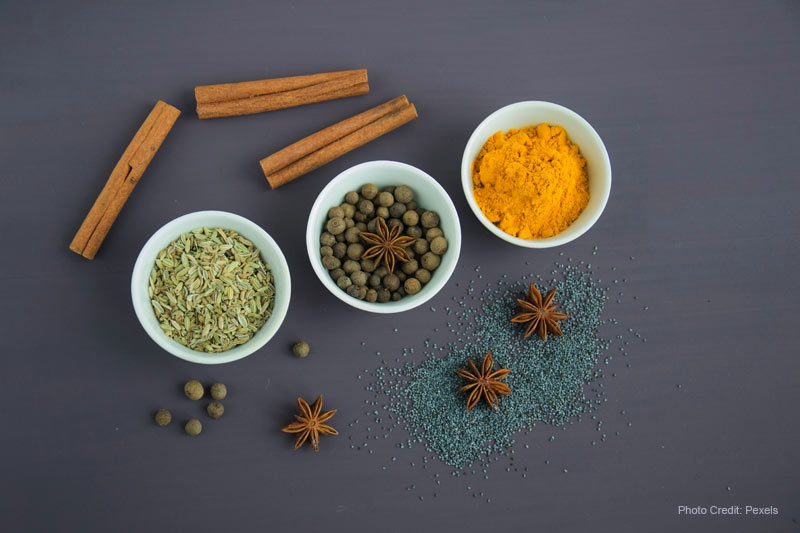
Chinese herbal medicine has been proven throughout the centuries to balance health. It combines herbs, diet, acupuncture, and qigong to prevent and address health problems. Traditional Chinese herbal medicine can successfully treat a wide range of conditions, such as allergies, anxiety, arthritis, depression, diabetes, high blood pressure, obesity, insomnia, and digestion issues. It can even be used to promote fertility and ease symptoms of menopause.
Herbs used in Chinese herbal medicine can keep the body in balance and promote overall health too. Some of the most commonly used herbs include:
Licorice (Gan Cao)
Licorice is often administered in small amounts to help other herbs work together and ease other herbs’ side effects. It can increase urine output, decrease sodium excretion, and increase potassium excretion. It is also used to reduce heat and treat chronic coughing. Licorice may ease symptoms of depression, cold, flu, heartburn, and skin rashes. In large doses, it can have negative health consequences, but it can be very beneficial in small doses.
Goji Berries
There is a history of using goji berries in Chinese herbal medicine that dates back over 3,000 years. They are rich in vitamins A & C, antioxidants, and fiber. They are generally used to improve nutrition and eyesight. They are also thought to minimize signs of aging by benefitting the function of the kidneys.
Ginseng
Ginseng is commonly associated with traditional Chinese herbal medicine, and it is one of the most widely used Chinese herbs in America. It is known as an energy booster and immune system enhancer that helps the body fight off infection and disease. Many use ginseng to treat fatigue. As an antioxidant, ginseng also rids the body of free radicals. In excess, ginseng can induce hypertension, insomnia, headaches, and rashes. It can also be challenging to digest and cause constipation, loss of appetite, and other gastrointestinal issues. Ginseng should be taken with caution. It can provide many benefits for patients but may come with risk to others.
Cinnamomum Cassia/Cinnamon
Native to China, cinnamomum cassia is a type of cinnamon with a pungent aroma. It has the ability to dilate blood vessels, promote blood circulation and enhance coronary and cerebral blood flow. The oil from cinnamon bark can enhance digestive systems, relieve abdominal pain, reduce bloating, and eliminate gas. This oil also has sedative and analgesic effects. Additionally, this herb can reduce the number of bacteria in the teeth and lower cholesterol.
Jujube
Jujube, also called a red date, has been used as a tea or cooked in rice porridge for centuries. It is thought to promote circulation, calm anxieties, and soothe the nerves. It can also treat insomnia and lift one’s mood due to high Vitamins B and C concentrations. Like licorice, jujube is considered a harmonizing herb that can make other herbs taste better and enhance their functions.
Lotus Seed
Dried lotus seeds are widespread in traditional Chinese herbal medicine. They can be found in teas, soups, and stir-fries. These seeds are rich in calcium, phosphorus, and potassium. Lotus seeds can aid digestion, replenish spleen deficiencies, stop diarrhea, and ease symptoms of heart and kidney diseases. They also help calm insomnia.
Mung Beans
Mung beans are a tiny nutritional powerhouse. They taste sweet and are loaded with potassium, magnesium, folate, fiber, and vitamin B6. The beans can aid digestion, detoxify the body, expel heat in the blood, reduce acne and skin problems, ease stress, and stabilize moods. As a rich source of many essential nutrients, mung beans can optimize body functions and treat many conditions.
Dried Mandarin Peels
While the flesh of citrus fruits has many nutritional benefits, traditional Chinese herbal medicine also employs the mandarin’s dried peel as a medicine. It can improve digestion, relieve intestinal gas and bloating, and minimize phlegm. It can also treat respiratory symptoms and promote healthy liver functions.
Aconite
Aconite is a powerful – and potentially dangerous – herb used in Chinese herbal medicine. It is a stimulant for the spleen and kidneys. Aconite is also widely used for fatigue, weakness, poor circulation, and heart disease. It can also ease symptoms brought on by the common cold, influenza, rheumatism, and congestion. Aconite can be toxic in large doses as it brings on respiratory failure. In many instances, it can be combined with other herbs to lessen its toxicity.
Traditional Chinese herbal medicine employs a variety of herbs, usually in combination to optimize overall health and treat underlying conditions. The different combinations can be tailored to meet the unique needs of your body. But before starting any new diet regimen, you may want to discuss the best herbs to use with a specialist in Chinese herbal medicine.
